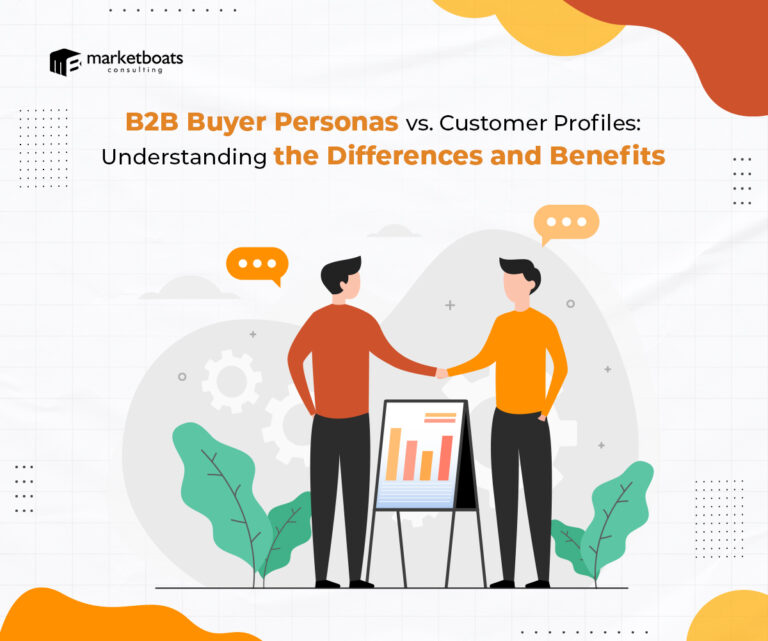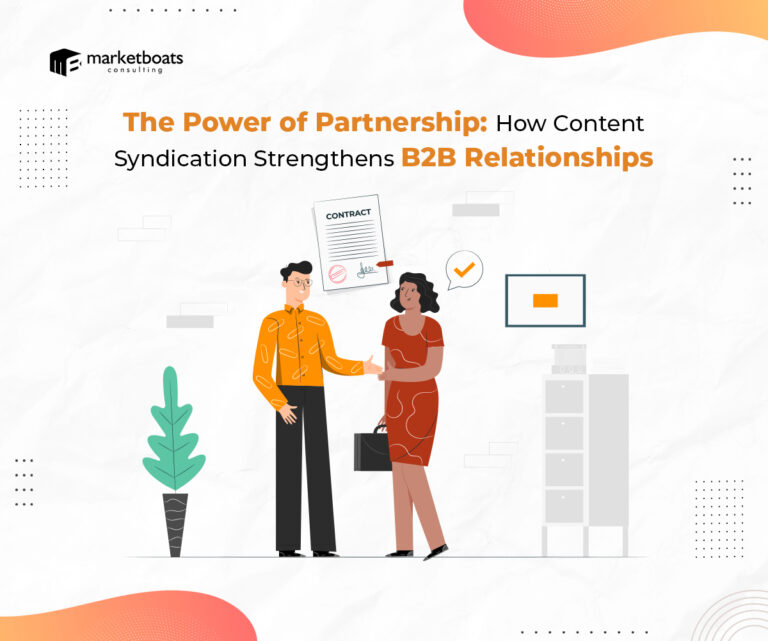Gone are the days when keyword density could manipulate search engine rankings. Now that you’re up against big companies with a strong web presence, you have to be smarter about your SEO approach. As search engines evolve, uncovering keywords aligned with real user intent has become pivotal since the ‘age-old’ book of B2B SEO strategies doesn’t work anymore!
Additionally, you need to make sure your website is compelling and user-friendly for the visitors, including how it works on the outside and inside and the technical parts of SEO. While it takes hard work to improve the popularity of your website, it can help you achieve increased traffic and more money.
So, how to get started with a comprehensive B2B SEO strategy?
Let’s learn some popular B2B website ranking tips and understand how they can help you secure that top spot in search results!
Understanding Your B2B Audience
Have you noticed that B2B sales cycles are usually longer than B2C ones? It is because you’re targeting key decision-makers of a business. A company’s revenue arc depends on its purchase decisions, so here the stakes are high.
Therefore, to convert a lead into a buyer, you must understand buyer psychology, single out customer pain points, and tailor personalised marketing campaigns according to client-specific needs. But it often happens that you’ve hit a wall. Despite your best efforts, your brand isn’t reaching the right audience.
This is where B2B SEO strategies come in!
If you want your brand to be visible to the right audience, understand what your audience searches for when they look for products that you sell. Conduct keyword research to prompt webpage discovery. Group keywords based on search intent. Create content around specific intent to cater to the needs of consumers across the sales funnel.
Keyword Research for B2B Markets
To identify high-value keywords for B2B markets, focus on your industry’s specific language and pain points. Start by brainstorming terms that your B2B clients might use when seeking solutions you provide. Tools like Google Keyword Planner and SEMrush can help uncover related keywords and gauge their search volume.
When considering keyword volume for B2B SEO strategy, there isn’t a one-size-fits-all answer. High-volume keywords can drive significant traffic but are often highly competitive and may not target specific user intent. Low-volume keywords, while attracting less traffic, can be more specific to your niche, lead to higher conversion rates, and have less competition. The best approach often involves a balanced mix of both, targeting high-volume keywords for broad reach and low-volume, long-tail keywords for a focused and engaged audience.
Effective B2B keyword research techniques include considering the buyer’s journey—awareness, consideration, and decision stages—and tailoring your keywords to match these phases. Competitor analysis is crucial; look for the keywords market leaders rank for and how their content is structured. Tools like Ahrefs can automate this process, giving insights into your competitors’ keyword strategies. By learning from these strategies, you can discover gaps in the market and opportunities to capture traffic from less contested, niche keywords.
Optimizing On-Page Elements
Now that you’ve armed yourself with generalized SEO tactics, let’s get into how you can optimize on-page SEO for B2B websites.
Title Tags and Meta Descriptions
Including your primary keyword in front of the title tag and the meta description does wonders in improving site visibility. Couple that with a strong call to action (CTA) in your meta description, and you’ve succeeded in sparking consumer interest. If you’ve taken care of the content part, you can just sit back and watch your click-through rates (CTR) soar.
Header Tags and Content Structure
To encourage longer stays, you have to enhance the readability of your content. Writing short paragraphs and sentences, and dividing information into bullet points are some ways to do so.
You can also present your content in an inverted pyramid style. In this formation, you write the most important information in the beginning and trickle down to the least important bit. Since most of the audience skims through vital points of an article, such presentations rope readers in significantly.
Image and Multimedia Optimization
One of the effective B2B website ranking tips includes using images with alt tags.
But what exactly is an alt tag?
An alt tag describes what the image shows. Do you see a text appearing in place of an image when you have poor broadband connectivity? That’s the alt tag. It does a great job of being inclusive towards visually impaired audiences. Additionally, it helps you rank in Google image searches, leading to an influx of image traffic.
But including images in your content can be a double-edged sword. While high-quality images can buy you additional traffic, if you don’t compress them, your website loading speed will decrease. Slow web pages happen to be directly proportional to the increasing bounce rate.
Another way to rank better is by using videos with your content. Video consumption rates are much higher than written texts because they make information easy to digest. This fosters better audience engagement and increases dwell time on site.
Off-Page SEO Techniques
Off-page SEO techniques are critical for enhancing a site’s perceived authority and relevance in the eyes of search engines. Here are some ways:
- Building authority through backlink strategies: This involves acquiring high-quality relevant links from other credible websites. This ‘vote of confidence’ signals to search engines that your content is valuable, thereby improving rankings. Such strategies include reaching out to industry influencers, creating shareable infographics, or leveraging the broken link-building tactic.
- Thought leadership and its impact on domain authority: Producing insightful, authoritative content establishes a website as a go-to resource within its niche, which in turn attracts more backlinks. A consistent thought leadership approach can lead to increased trust and higher domain authority, resulting in better search engine visibility.
- B2B collaborations and guest blogging opportunities: By partnering with other businesses for content exchanges or guest posting, a website taps into new audiences, gains referral traffic, and enjoys the SEO benefits of external links. A selective approach to these collaborations, focusing on quality and relevance, can significantly amplify a website’s standing and search performance.
Technical SEO Considerations
You’re halfway through once you’ve optimized your website with on-page SEO tactics. Now with some back-end tweaks, your website will be primed for success. So, let’s look at some strategies for technical SEO for B2B Websites!
Site Architecture for B2B Websites
You should hyperlink some of your best content pieces to your new content pages. This process is known as internal linking. With internal linking, you can boost page authority and topple your competitors to secure that #1 rank in search queries.
First, you have to create a pillar page that explains the A to Z of a topic. Then, you deep dive into specific subtopics under that topic and hyperlink the pillar page. With such interlinking, you are informing search engines of valuable content pieces on your site so that they can crawl and index better.
Apart from prompting page discovery, interlinking can help you spread out traffic evenly on your site. You will notice that some pages always outperform others on your site. Hyperlinking the high-performing ones into the low-performing ones helps you transfer link authority to those underrated web pages and holistically improves site ranking.
Mobile Optimization and Speed
Until the third quarter of 2023, 53.42% of website traffic worldwide was accounted for mobile devices. Do you see why optimizing your site for mobile devices is important?
Mobile optimization also helps with boosting web page rankings. With Google’s mobile-first indexing, Google ranks the mobile version of your site’s content above sites that are simply desktop-optimized. Since most searches are now on Google, you can easily test if your site is mobile-friendly with Google’s Mobile-Friendly Test.
Security and Trust Signals
Search engines fundamentally give importance to site security. So, if you have HTTPS encryption, it informs search engines that your site is secure, and they rank you above unprotected HTTP sites. You can gain the required HTTPS encryption for your site with an SSL certification.
Content Marketing and B2B SEO
‘Content Writing 101’ is writing unique, informative, and compelling content that provides value to your customers. B2B content optimization with SEO tactics like keyword plug-ins can only help you so much. Unless your content speaks for itself: enriched with case studies, real-life examples, and original research, no SEO tactic can help you rank better.
Here’s a content writing thumb rule for you: never take the shortcut. Statistically, in-depth articles rank better than ones that only provide a superficial overview. You can also track what your customer wants to read, create a content calendar, and schedule customer-oriented releases to spike traffic.
B2B SEO Analytics and Performance
At this stage, you’ve employed every SEO manoeuvre you know. Now, to improve your website’s visibility to other businesses, it’s crucial to set clear goals and track them using Google Analytics. This tool allows you to see how visitors interact with your site and which pages they frequent the most.
Additionally, using Google Search Console can provide valuable insights into how your site appears in search results. To maintain your website’s SEO health, it is important to conduct regular SEO audits, which will help you identify areas for improvement and make necessary adjustments to keep up with ever-changing search engine algorithms.
Advanced B2B SEO Strategies
Here are a few B2B SEO strategies that you need to employ:
Featured Snippets and Rich Snippets
Targeting position zero in search engine results pages (SERPs) is a coveted goal for B2B marketers. Featured snippets provide quick answers to user queries directly on the SERP, and rich snippets enhance the appearance of an entry with additional data, such as ratings and prices. To maximize your chances of securing these spots, focus on structuring content that directly answers frequently asked questions in your industry.
Structured Data Markup and Its Benefits for B2B
Leveraging structured data markup is key to informing search engines about the context of your content. This not only aids in achieving featured snippets but also improves overall visibility and click-through rates. For B2B businesses, structured data can highlight key company information, products, and services, making information clear and accessible for potential clients.
AI and Machine Learning in SEO
Integrating AI and machine learning in SEO strategies offers a way to predict trends, understand search patterns, and automate tasks like keyword research and content optimization. For B2B sectors, where the sales cycles are longer and the buyer’s journey is more complex, these technologies can forecast customer behavior and provide invaluable insights.
Conclusion
The B2B landscape today is highly competitive and dynamic. Needless to say, only the fittest would survive. The obvious key to this survival, yes, you guessed it right, is brand awareness! And SEO optimization is certainly a way of increasing your brand visibility. Customers see you, know about you, trust you, and buy from you. The mantra is that simple.
But if executing B2B SEO strategies seems too complicated for you, allow Marketboats to help!
We bring your audience to you with our content syndication and multichannel marketing services to help you syndicate content on multiple platforms, ensuring your website never rots in a customer blind spot.
Additionally, our cutting-edge cloud-based platform, CALS, provides you with high-quality leads that have been cleansed, standardized, and enriched.
So, what are you waiting for? Contact us today!





